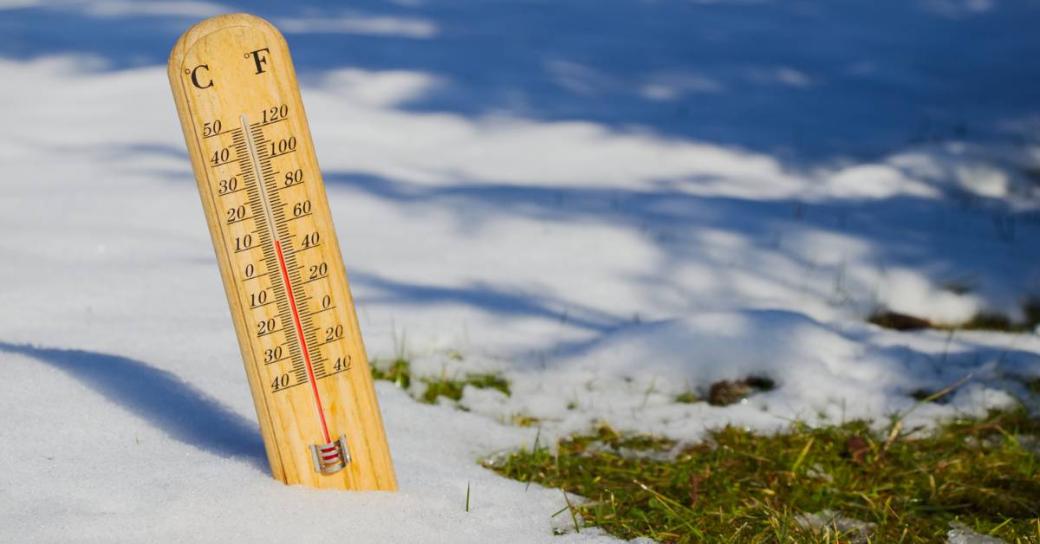Climate change threatens snowy seasons
Across the globe, communities are witnessing the alarming effects of climate change on winter seasons

Extreme weather affects people in Canada and around the world.
This year’s winter has been judged as the warmest winter in Canadian history. Some areas across the country broke records with heavy snowfall or frigid temperatures. Other regions, like Manitoba and Ontario, experienced the season in a different way. We had a very mild winter without a lot of snow. In fact, it was hard to believe it was winter at most times! As an example, Toronto Pearson Airport had a mean temperature above freezing this winter for the first time on record at 0.3 degrees Celsius.
We know that snow can be inconvenient from time to time. But do you know how important it is to the environment? Snow acts as insulation, helping protect plants and animals from the cold temperatures. When it melts, plants get water and streams and rivers are replenished.
Without snow cover, soil can thaw too quickly, and plants may be susceptible to late frost and freezing. Animals rely on these plants, and so do we. When plants aren’t protected from late frost and freezing, crops can fail and affect our food supply. Invasive species also thrive in the milder weather. This had led to the rapid spread of the deer tick, which carries Lyme disease.
The warming of the ocean surface (also known as El Nino) is one of the reasons why we had a warm winter. Human-caused greenhouse gas emissions and the rise in global sea and air temperature are increasing the frequency and intensity of El Nino events. Hotter, wetter, and more extreme weather is expected as the ravaging effects of climate change continue. Did you know that 2023 was the planet’s warmest year on record, with the past nine years all following close behind? Canada is also warming twice as fast as the global rate.
If you find yourself thinking that milder weather can’t be all that bad, think again. Extreme weather is destroying the lives and livelihoods of people around the globe every day. Extreme storms, wildfires, drought, floods, and crop collapse all affect people in Canada and around the world.
Extreme weather disasters caused by climate change also do not affect people equally. People in poorer countries are at least four times more likely to be displaced by extreme weather than people in well-developed countries.
What does the changing weather condition mean for people, including TCHC tenants?
Vulnerable populations, low-income households, people of colour, and at-risk communities often feel the impacts of climate change disproportionately. Extreme heat can cause serious health risks to seniors, children, and people with respiratory issues. Rising food costs, power outages, leaks and floods, and mold can also negatively affect tenants. Many tenants may also have friends and family in countries that are experiencing catastrophic loss brought on by the climate crisis.
What can you do?
The Conservation team is working on several initiatives to help Toronto Community Housing lower its carbon emissions. Please help support our efforts by following our recommendations, offering feedback, and participating wherever you can.
Here are some simple tips that you can follow to promote sustainable living and protect the environment from pollution:
- Choose green alternatives when making purchases.
- Reduce waste by avoiding single-use plastics and disposing your waste in the correct waste stream.
- Shop locally and eat more plant-based foods.
- Dress appropriately for weather to limit use of air conditioners and space heaters.
- Limit water wastage by reporting leaks and turning off taps when lathering hands and brushing teeth.
- Use LED light bulbs and keep the lights off when not in use.
- Use power bars with an on/off switch to shut off power to electronics when not in use.
To learn more about conservation initiatives and programs, please visit torontohousing.ca/conservation. You can also email us at conservation@torontohousing.ca if you would like the Conservation team to come and talk in your community about conservation and environmental issues, or if you'd like to volunteer with the team at community cleanups.
